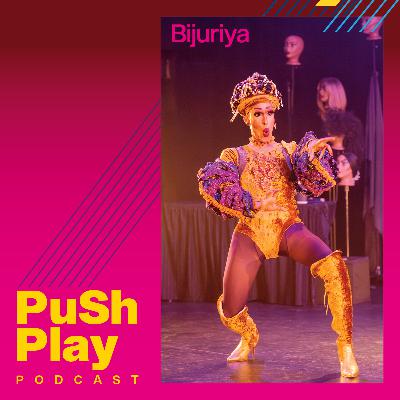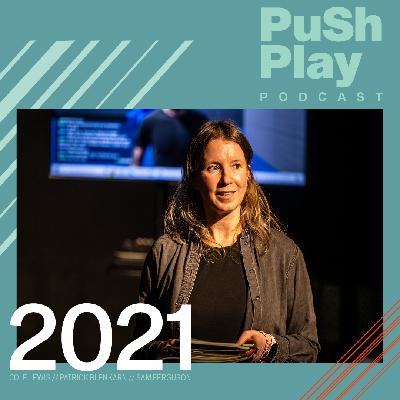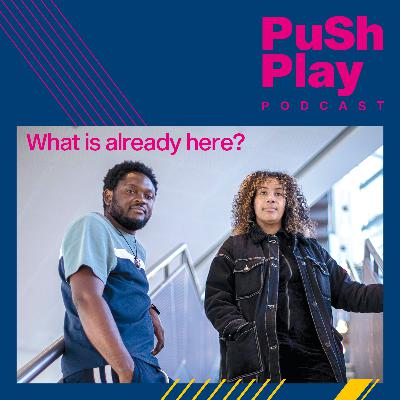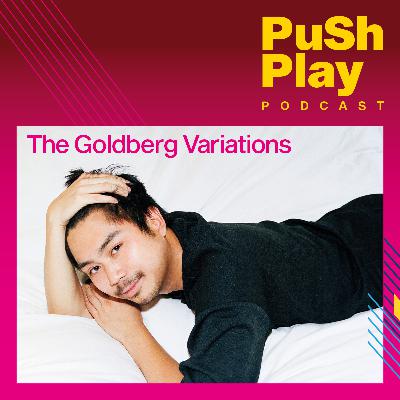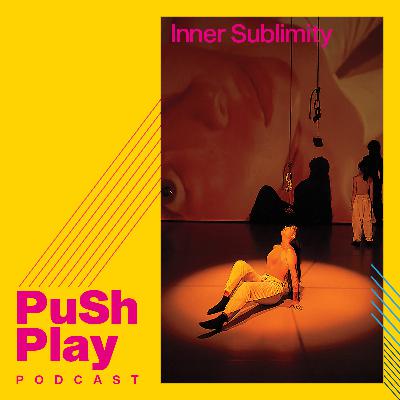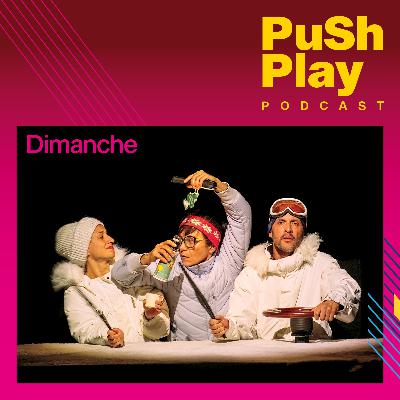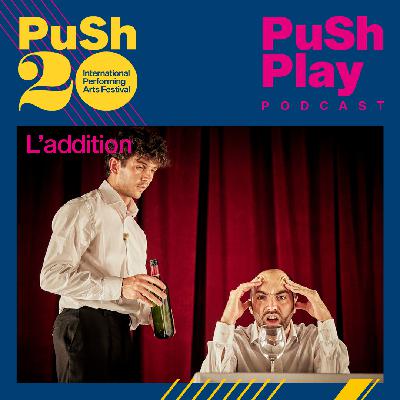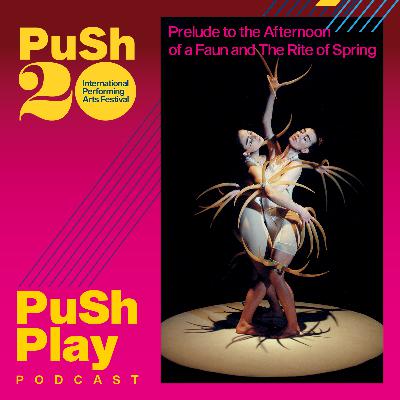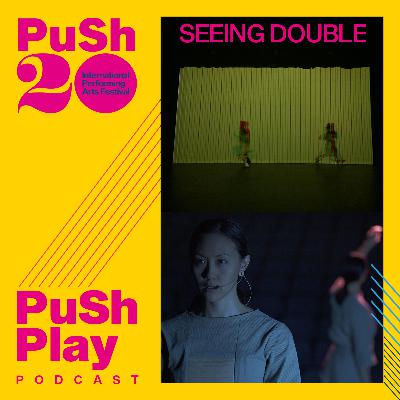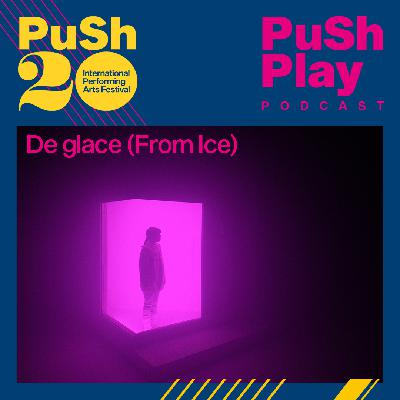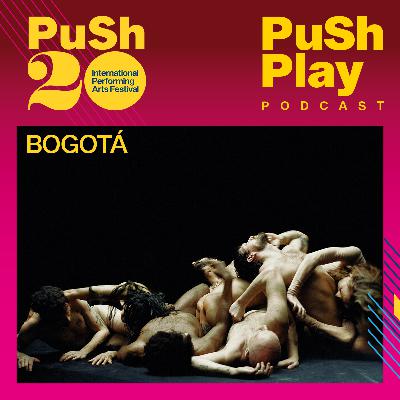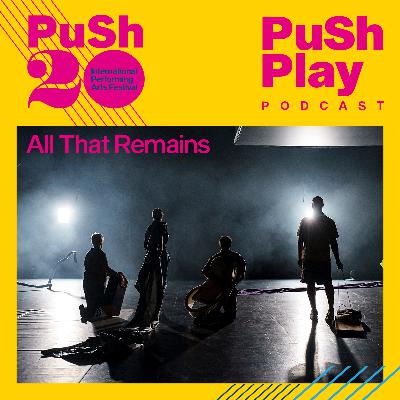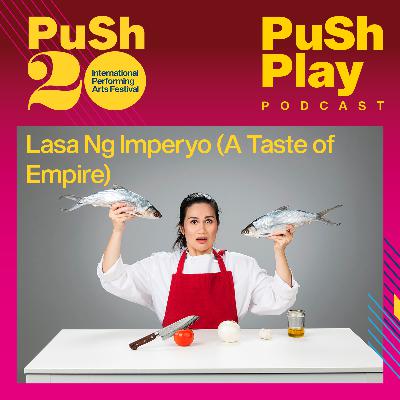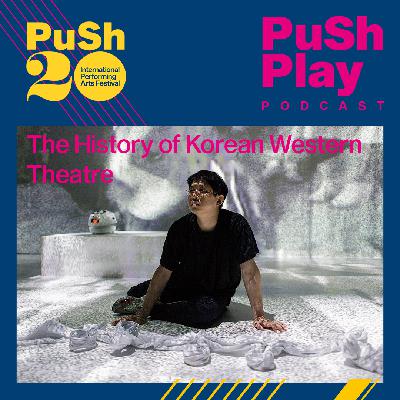Ep. 51 - Unclassifiable (Bijuriya)
Description
Gabrielle Martin chats with Gabriel Dharmoo, who is presenting Bijuriya at the 2025 PuSh International Performing Arts Festival on January 28 and 29 at the ANNEX, with Music on Main and the Indian Summer Festival and support from the Government of Quebec.
Show Notes
Gabrielle and Gabriel discuss:
-
How do we artfully engage with colonialism?
-
What does it mean to have a transcultural perspective?
-
What does it mean to be an artist at the intersection of high and low, east and west?
-
Have you always worked across so many forms and disciplines or was there a trajectory that led from one to the other?
-
Are you more interested in self-directed projects these days?
-
What does it mean for you to investigate queerness?
-
Can you talk about the direction of your aesthetic since Anthropologie Imaginaire?
-
What are you working on next?
About Gabriel Dharmoo
Gabriel Dharmoo is a composer, vocalist, improviser, interdisciplinary artist and researcher.
After studying with Éric Morin at Université Laval, he completed studies in composition and analysis at the Conservatoire de musique de Montréal with Serge Provost, graduating with two Prix avec grande distinction, the highest honour awarded. His works have been performed in Canada, the U.S., France, Germany, the Netherlands, Switzerland, Spain, Estonia, Poland, Australia, Singapore, and South Africa. He has received many awards for his compositions, including the Canada Council for the Arts Jules Léger Prize for his chamber work Wanmansho (2017) and the Conseil Québécois de la Musique Opus Award for his opera À chaque ventre son monstre (2018). He was also awarded the Canadian Music Centre's Harry Freedman Recording Award (2018).
Having researched Carnatic music with four renowned masters in Chennai (India) in 2008 and 2011, his musical style encourages the fluidity of ideas between tradition and innovation. He has participated in many cross-cultural and inter-traditional musical projects, many led by Sandeep Bhagwati in Montreal (Sound of Montreal, Ville étrange) and in Berlin (Zungenmusiken, Miyagi Haikus).
As a vocalist and interdisciplinary artist, his career has led him around the globe, notably with his solo show Anthropologies imaginaires at the Amsterdam Fringe Festival (2015) and the SummerWorks Performance Festival (2016). They also explore queer arts and drag artistry as Bijuriya (@bijuriya.drag).
He is an associate composer at the Canadian Music Centre and a member of SOCAN, the Canadian New Music Network, and the Canadian League of Composers. Since 2015, Gabriel has been a PhD candidate at Concordia University's PhD "Individualized Program" with Sandeep Bhagwati (Music), Noah Drew (Theatre) and David Howes (Anthropology).
Land Acknowledgement
This conversation was recorded on the unceded, stolen and ancestral territories of the Coast Salish Peoples: the xʷməθkʷəy̓əm (Musqueam), Skwxwú7mesh (Squamish) and Səl̓ílwətaɬ (Tsleil-Waututh), colonially known as Vancouver.
Gabriel joined the conversation from what is now known as Montreal, on the traditional territory of the Kanien'kehà:ka, a place which has long served as a site of meeting and exchange amongst many First Nations including the Kanien'kehá:ka of the Haudenosaunee Confederacy, Huron/Wendat, Abenaki, and Anishinaabeg.
It is our duty to establish right relations with the people on whose territories we live and work, and with the land itself.
Show Transcript
Hello and welcome to Push Play, a Push Festival podcast featuring conversations with artists who are pushing boundaries and playing with form. I'm Gabrielle Martin, Push's Director of Programming, and today's episode highlights intersectional exploration and drag-pop aesthetics.
I'm speaking with Gabrielle Darmout, artist behind Bijuria, which is being presented at the Push Festival, January 28th and 29th, 2025. In this quirky yet poignant examination of the intersections between queerness and brownness, Gabrielle Darmout engages in a self-reflexive dialogue with his drag persona, Bijuria.
This musical conversation delves into the power of song to express the hybrid, multifaceted layers that coexist with an identity, offering an insightful reflection on the fluidity of human experience.
Gabrielle Darmout is a music composer, vocalist, and interdisciplinary artist. He was awarded the 2017 Jules Léger Prize for Chamber Music, following up on his internationally acclaimed solo, Anthropologie Imaginaire.
His new production, Bijuria, merges music, drag, and theatre, and has been presented a dozen times in Canada since 2022. Here's my conversation with Gabrielle. So just before we dive into really getting to know you, I want to acknowledge that I am participating in this conversation today from the stolen ancestral and traditional territories of the Coast Salish peoples.
So the Musqueam, the Squamish, and the Tsleil-Waututh. I'm a settler here, and it's my responsibility to continue to think about what that means, my relation to decolonization and restitution, and educating myself.
And that looks differently each day. And recently, I mean, I refer to this actually quite often. in these land acknowledgments is acknowledging Yellowhead Institute because it's an incredible wealth of information and an incredible educational resource.
So I've been reading their cashback red paper and it really does a great job of framing what cashback is all about, about restitution from the perspective of stolen wealth. And framing it that it's not a charity project and it's a part of decolonization and understanding that colonization is an economic project based on land theft that requires a political system that operates through domination and violence to maintain theft and therefore enriches the settler state necessarily,
impoverishes or in enriching the settler state and necessarily impoverishes and criminalizes the colonized. And I just find it so, their writing is so clear in how they frame these things that, yeah, I learn a lot.
Gabrielle, where are you joining this call from today? Thanks for sharing that. I am talking to you from home in Montreal or Joe Chaggy. Here's land of the Kanyakahaga, who are recognized as the custodians of the land and waters.
I have Indo-Caribbean ancestry from my father's side. So a whole history of indenture and a race sort of cultural ties to the South Asian subcontinent. And my mother is a French Canadian, present of such things, so I'm half white, half brown, but are they really halves?
You can't quantize it that way, but that's been my, yeah, my art is a good way for me to actually engage with all questions related to identity and power or decolonization or reflecting on coloniality as this thing that is part of everything and that we have to mindfully engag

